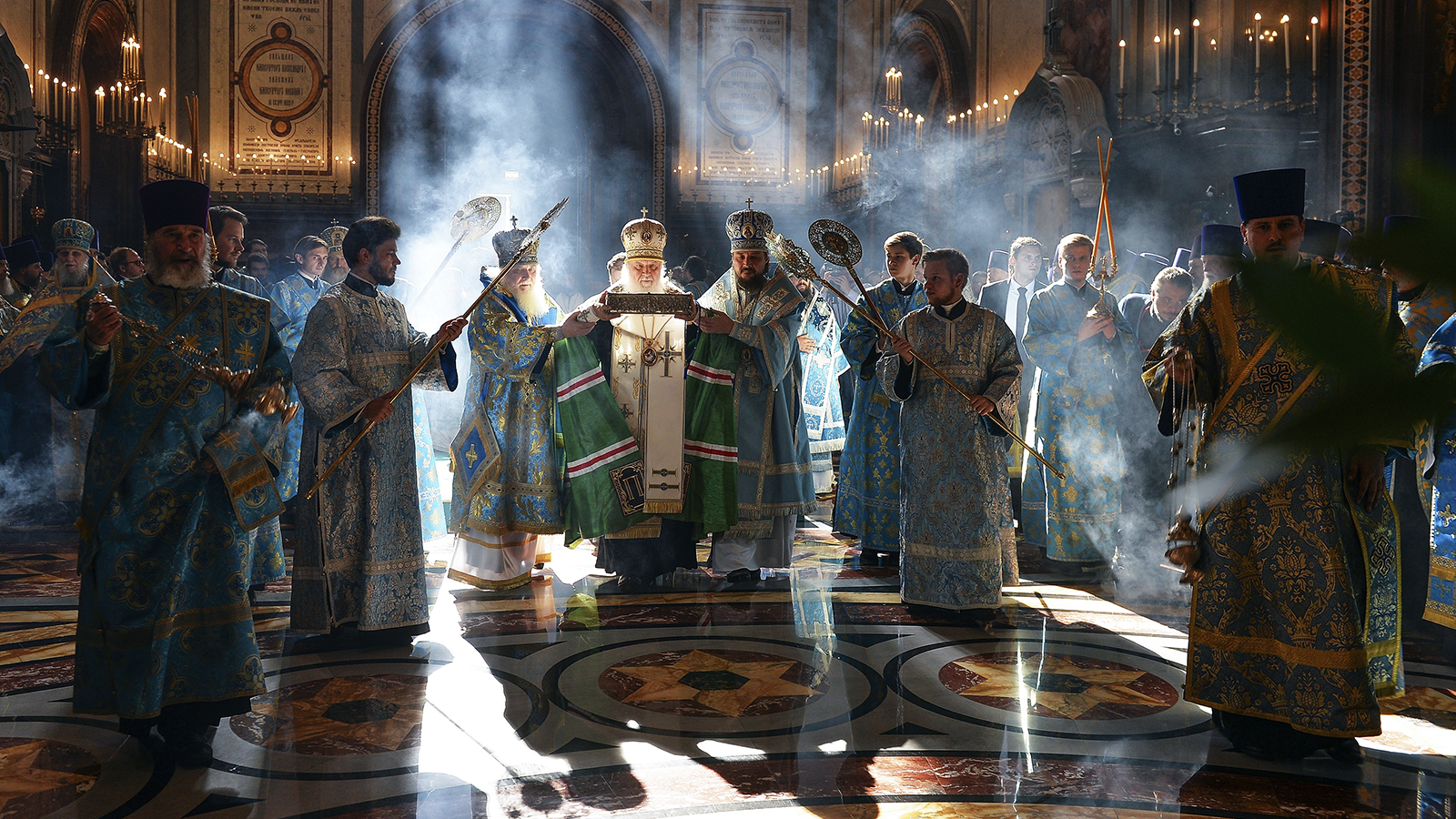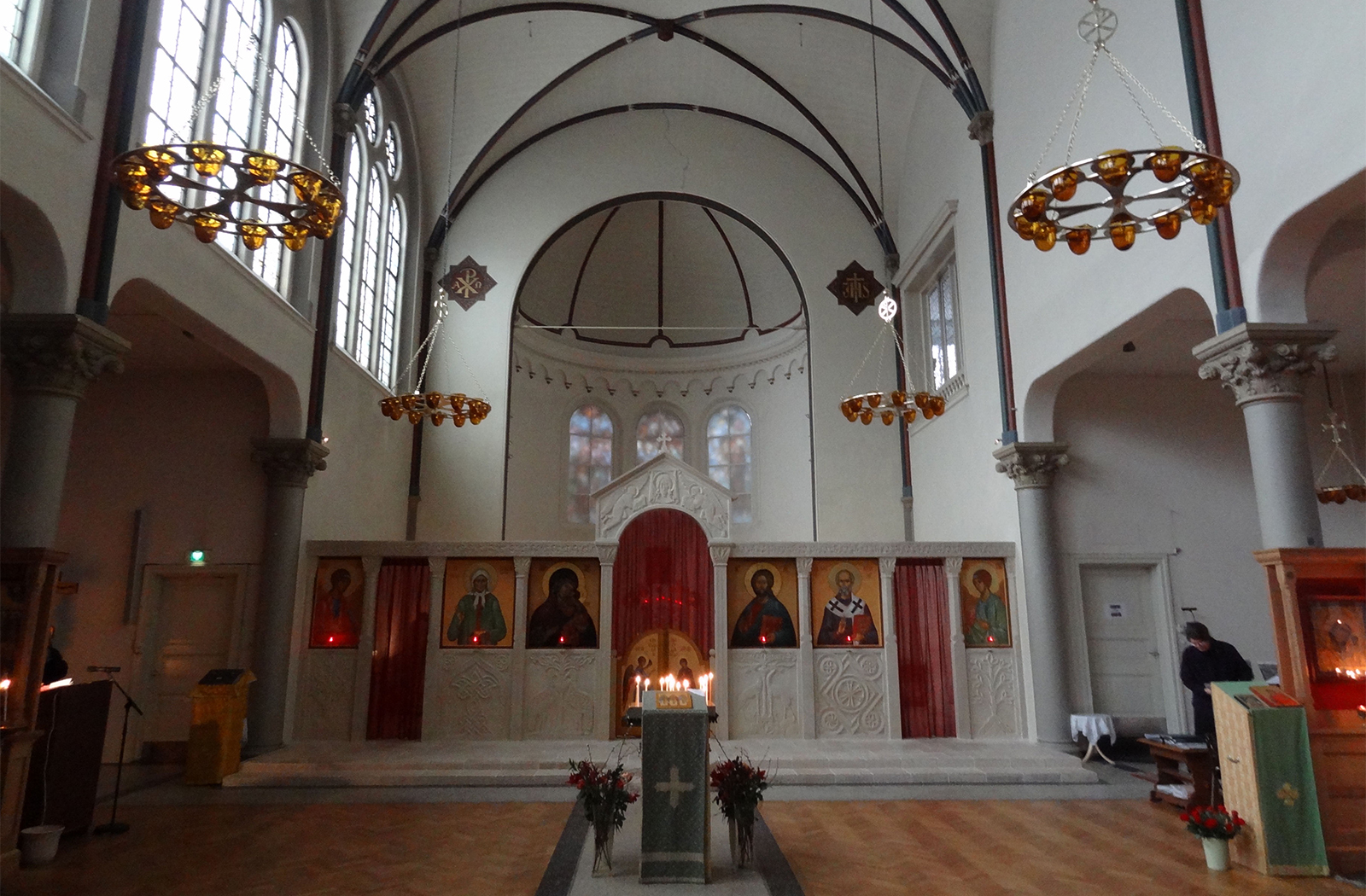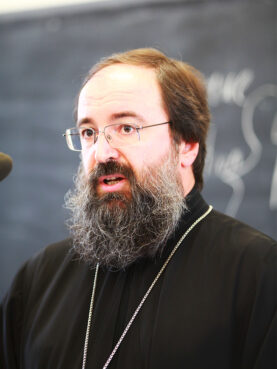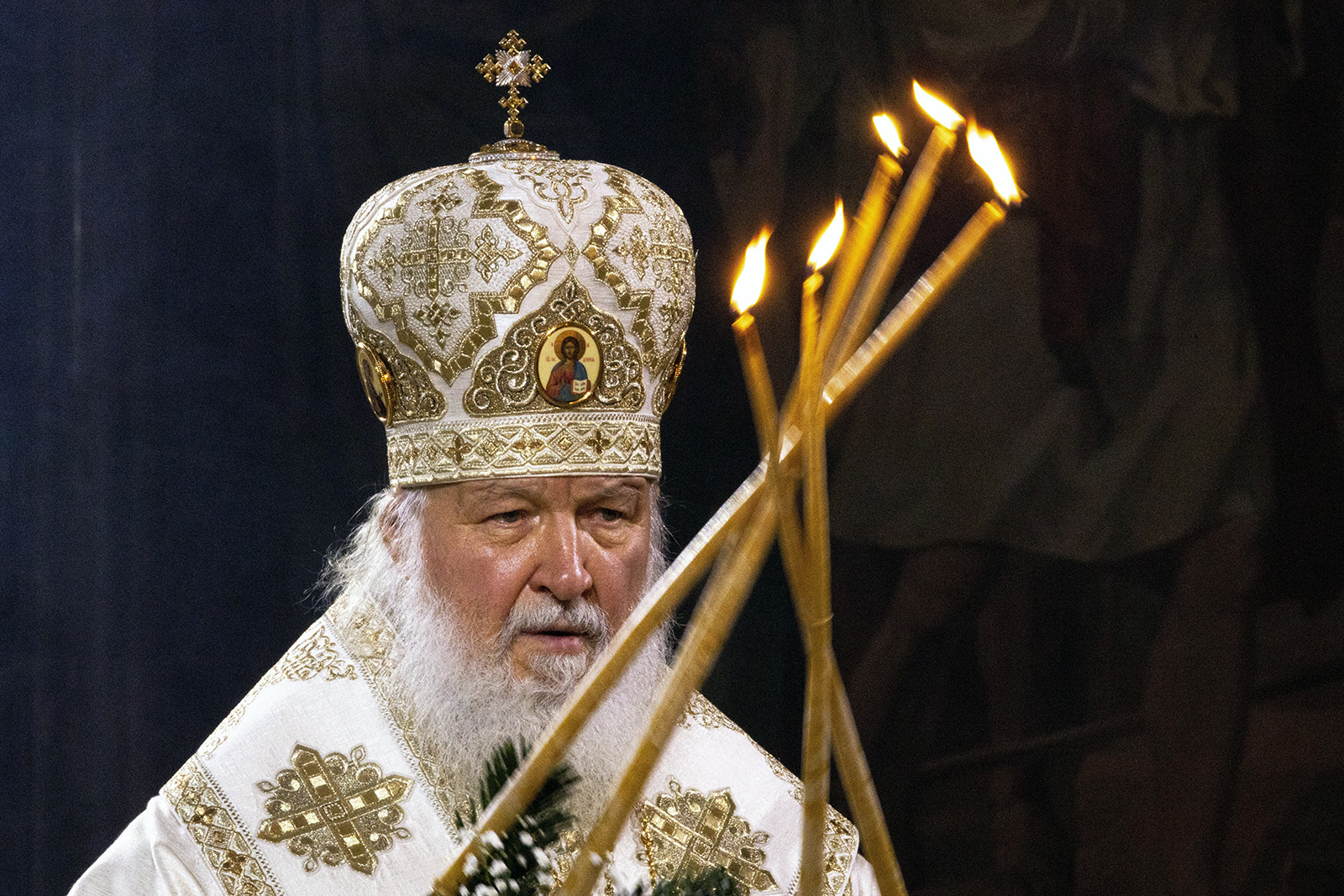
PARIS (RNS) — The war in Ukraine has split Russian Orthodox parishes across Europe, forcing believers outside Russia to either stay loyal to the church leadership in Moscow despite its support for the invasion, leave the church in protest or seek a messy middle ground.
While public opinion in Europe has almost unanimously denounced the war Russian President Vladimir Putin has unleashed, the small communities of Russian Orthodox faithful to the Moscow Patriarchate are in a bind because its head, Patriarch Kirill, has come out solidly in its favor.
Many of these believers are Western-born descendants of earlier emigres who have few links to today’s Russia but a faith anchored in the Russian tradition. Some belong to other Orthodox churches but happen to frequent a Russian church.
Archbishop John of Dubna in Paris, the head of a diocese of Russian Orthodox in Western Europe, struck a typical note by declaring solidarity with Ukraine and calling the war “monstrous and senseless” in an open letter to Patriarch Kirill March 9. While denouncing Kirill’s support of the war and asking for his intervention, Dubna stopped short of taking action that might signal a formal break.
Others stopped commemorating the patriarch in their liturgies, which ranks as a serious protest in Orthodox churches, but otherwise kept their dissent discreet. Only more attentive parishioners would notice on Sunday that the patriarch was not mentioned in normal commemorative prayers.
RELATED: Among Russian Orthodox, glimmers of dissent against the invasion of Ukraine

The Parish of St. Nicholas of Myra in Amsterdam. Photo by Jim Forest/Flickr/Creative Commons
The Parish of Saint Nicholas of Myra in Amsterdam, where several hundred worshippers from about 20 nations attend weekly services in Dutch, Russian or English, has learned how complicated this choice can be. Probably the first Western Orthodox church to break ties with Moscow over the Russian invasion of Ukraine, St. Nicholas went from loyal criticism of Moscow’s decision to switching its allegiance to the rival Ecumenical Patriarchate in Istanbul.
“There are many traditions within Russian Orthodoxy,” Archimandrite Meletios Webber, head of the parish, told the congregation on Monday (March 14).
The London-born archimandrite — a monsignor in Roman Catholic terminology — spoke in a clipped English accent at his church near central Amsterdam. Another Orthodox priest translated his remarks into Russian.
“This tradition cannot be attached to any organization or any thought which promotes violence and warfare,” said Meletios, born an Anglican but converted during his studies at Oxford by the influential British Orthodox theologian, Bishop Kallistos Ware.
Horrified by the ferocious fighting in Ukraine, the four priests of St. Nicholas first signed a petition in early March asking Patriarch Kirill to urge Russian authorities to end the war. But Kirill, doubling down like his ally Putin, came out in favor of the war, prompting a petition from Orthodox priests in Russia against the violence. Even the head of the Ukrainian Orthodox Church loyal to Moscow, Patriarch Onufry, appealed to Putin for “an immediate end to the fratricidal war.”

Archbishop Elisey. Photo by James Hyndman/Wikipedia/Creative Commons
The priests in Amsterdam decided they could no longer commemorate Kirill at their divine liturgies and informed their superior, Archbishop Elisey of the Moscow Patriarchate in The Hague.
On March 6, Archbishop Elisey turned up unannounced just before their Sunday service. He took over the celebration and made sure a deacon from outside the parish commemorated Kirill.
“His visit was like a spiritual tank sent to our parish,” one parishioner complained afterwards to the Dutch daily Nederlands Dagblad.
The archbishop, who came in a car from the Russian embassy, warned the priests that both the Moscow Patriarchate and the Russian Foreign Ministry were closely following developments in the parish.
The priests saw Archbishop Elisey’s warning as a threat but loyally mentioned his name during the service. “Then we started making contact with other hierarchs,” Meletios said.
“We have not left the Moscow Patriarchate,” the priests wrote on the parish website last week in an initial report about the archbishop’s unexpected visit. They listed examples from the past when dropping a patriarch’s name from a liturgy was not considered a schism.
But by Tuesday, March 8, a “Z” — the symbol widely used in support of Moscow’s intervention in Ukraine — was daubed on the church’s gates. During the week, the parish received enough other threats that it decided to close down until further notice.
RELATED: Putin is after more than land — he wants the religious soul of Ukraine
It was “no longer possible to function within the Moscow Patriarchate and provide a spiritually safe environment for their believers,” they concluded in another report on Saturday.
“We cannot go back on our decision to distance ourselves from Patriarch Kirill. Our consciences will not allow that,” they said. “So we see ourselves forced to link with the Ecumenical Patriarchate.”

Russian Orthodox Patriarch Kirill in the Christ the Saviour Cathedral in Moscow, Russia, early Thursday, Jan. 7, 2021. (AP Photo/Alexander Zemlianichenko)
The priests have now asked Archbishop Elisey to officially dismiss them from his diocese and asked Metropolitan Athenagoras, the top cleric of the Ecumenical Patriarchate in the Benelux countries, to take them under his wing.
They took “this very difficult step with pain in our hearts,” they said. The parish council backed the decision, and a final parish vote on the issue will take place at the end of this month.
“We who live in the West and have lived in the West for the last 50 years have seen the Russian Church under very different circumstances from those under which it finds itself today,” Meletios said to explain the clergy’s decision. “Indeed, many of the best Russian parishes in Western Europe and the Americas have only been in the Russian Orthodox patriarchy for a very short period.”
“Our parish is and will continue to be open to all Orthodox Christians of good will. We are concerned with the kingdom of Heaven and not with any political movement of any kind of kingdom here on Earth,” he added.
“We see our own pain very clearly, but it is nothing compared with the pain of those who are being bombed out of existence in a country far away.”
Tom Heneghan is the former religion editor for Reuters. He lives in Paris.
